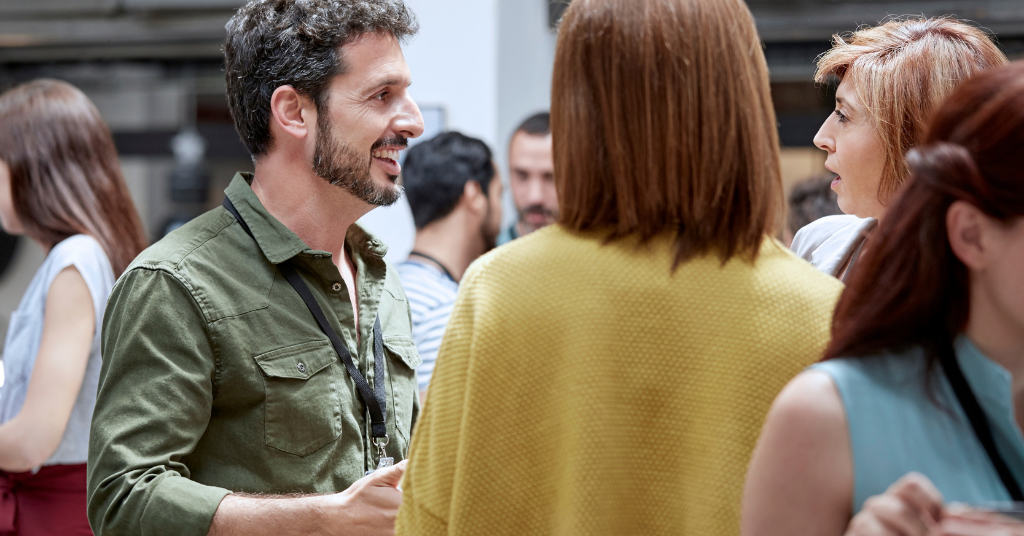
Woman uses prize money to create hearing aid accessories, fund technology for those in need
October 25, 2021
Behind the scenes of Cannes winner ‘We Hear You’
October 28, 2021Dealing with domestic abuse in the deaf community

October is National Bullying Prevention Month, as well as Domestic Violence Awareness Month. Although sensitive topics, these are important issues that impact many individuals. Domestic abuse in the deaf community exists.
Bullying
Bullying is a topic that most people are familiar with. Chances are you’ve been exposed to it at some point in your life. Bullying can happen anywhere, at school, work, home, or in the community. There are various types of bullying, including physical, verbal/emotional, and cyber bullying. It occurs when one intentionally and repetitively tries to bring someone down through means of verbal or physical attacks, humiliation, embarrassment, and so on. Many deaf and hard of hearing individuals have experienced their fair share of bullying as it pertains to their deafness and hearing loss.
This is actually a huge reason why I’m such as advocate for anti-bullying through my page and blogging. In middle school, I experienced physical, verbal, and cyberbullying, and a lot of it did pertain to my deafness. I was often called “deaf and dumb,” made fun of because I was the “deaf girl in the room who couldn’t hear,” and left out because it was easier to exclude than to accommodate. The list goes on. I was a victim of bullying for so long and decided I didn’t want to be a victim anymore. I wanted to take a stand and be an advocate for other victims.
Read more: When bullying isn’t just a teenage problem
Domestic Abuse in the Deaf Community
People with hearing loss are often made to feel like outsiders, made fun of for wearing hearing aids, the way they talk or choose to communicate, mishearing things, etc. There are countless reports demonstrating the prevalence of bullying among the deaf community. For instance, according to a 2013 study by Weiner, Day, and Galvan, it was reported that “deaf and hard of hearing students experience bullying at rates 2-3 times higher than those reported by hearing students. Deaf and hard of hearing students reported that school personnel intervened less often when bullying occurred than was reported in the hearing sample. Results indicate the need for school climate improvement for all students, regardless of hearing status (Weiner, Day, Galvan, p.1, 2013).”
“…deaf and hard of hearing students experience bullying at rates 2-3 times higher than those reported by hearing students.”
We are often seen as incapable or less than our hearing peers and are put down for that, when really, that’s not the case. We are no less worthy or capable than anyone else.
Read more: Growing up with hearing loss: How I gain confidence to be myself
False Perceptions
Domestic abuse/violence is any form of abuse (physical, verbal/emotional, sexual, bullying, harassment, humiliation, degradation, etc.) within a relationship with a significant other or a loved one. Just like bullying, domestic abuse and domestic violence is also something that anyone can experience and comes in many of the same forms. However, there’s a lot more complexities involved including the cycles of abuse, relationship dynamics, etc.
Deaf and hard of hearing individuals may experience increased incidences of domestic abuse and violence due to being falsely seen as weak or vulnerable. VAWnet: A Project of the National Resource Center on Domestic Violence, explains this a little more in-depth. Additionally, the Nia Project conducted through the Department of Psychiatry and Behavioral Science at Emory University presents the statistics of domestic violence in members of the deaf and hard of hearing population. One significant mention on this site is as follows: “Within the deaf community, there is a ‘double code of silence’ related to domestic violence because services are typically not culturally sensitive or accessible for deaf survivors and because the deaf community has historically misunderstood or minimized the issue (Rems-Smario, 2007).”
“Deaf and hard of hearing individuals may experience increased incidences of domestic abuse and violence due to being falsely seen as weak or vulnerable.”
If You’re Struggling
If you’re struggling with bullying or domestic abuse, first and foremost, know that you are not alone. Help, support, and hope are out there. Below are some accessible resources that are available 24/7.
- If you’re in crisis and need immediate support, you can text “Home” to 741741 to be connected to a live crisis counselor over text at Crisis Text Line. Someone is always available to listen and support you when you need it most.
- StopBullying.gov has some valuable resources.
- For victims and survivors of domestic abuse, you can also call, text, or chat The Domestic Abuse Hotline.
Additional resources can be found at your local domestic violence shelter or agency.
I know how hard it can be to seek help in these experiences. You may feel like you have tried and hit dead ends, or that no one will take you seriously. My biggest piece of advice is to never, ever stop speaking up, and never stop fighting. Know that you deserve to be treated with respect and to be heard.
What We Can Do as a Community
So, what can we as a community to do support victims and survivors of bullying and domestic abuse with hearing loss? The answer is, a lot.
While it may be intimidating to speak up, or get involved, it’s also one of the most crucial things we can do. It all begins with listening, caring, and believing.
- Care. If someone comes to you and mentions experiences of bullying and/or domestic abuse, never ever dismiss these experiences. You may not know how to help but you can always be a supportive, listening ear to another who is struggling. Sometimes that’s what people need most.
- Help when you can. Offering to seek help or resources with someone who is struggling can be more helpful than you know. It shows others that they don’t have to go through it alone. This is even more true in cases of inaccessibility. Having an additional person there can be really helpful in advocating for access, helping with communication, etc. especially in such distressing experiences.
- Be an advocate and an ally. It takes more than one victim or survivor to stand up to make a difference. When people come together to be advocate and allies, we can make change happen. We may not be able to change the world, but we can change a life, even if it’s just for one person.
- Spread awareness. The more the word gets out, the more effective change and awareness can be. Help us get the word out on these important topics that affect so many. There are so many ways to do this. Share a post, start conversations, cultivate community.
Read more: Why we need deaf peer support in our communities
- Author Details



